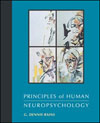

 Principles of Human Neuropsychology Memory Systems Review Questions |
 2002 McGraw-Hill Higher Education
2002 McGraw-Hill Higher EducationAny use is subject to the Terms of Use and Privacy Policy.
McGraw-Hill Higher Education is one of the many fine businesses of The McGraw-Hill Companies.